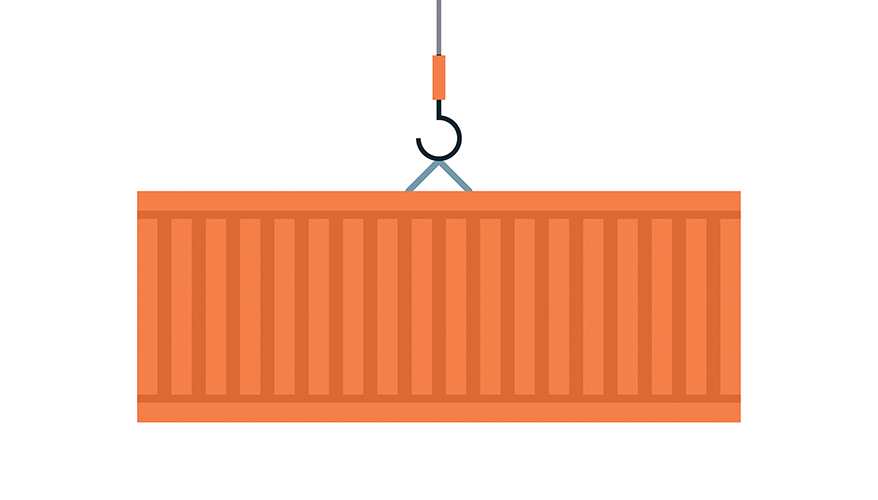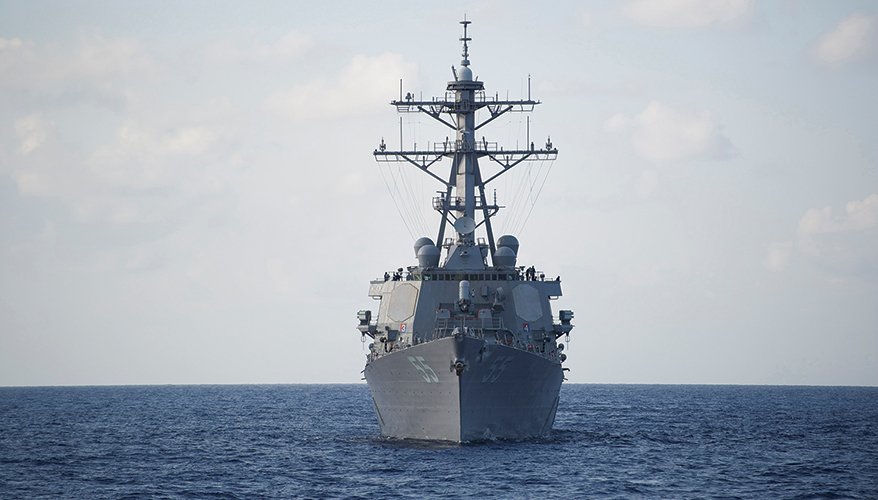Will US Export Regulations Derail AUKUS

iStock illustration
China is the first adversary the United States has faced since World War II that, according to the National Security Strategy, has “both the intent to reshape the international order and, increasingly, the economic, diplomatic, military and technological power to advance that objective.”
The agreement between the United States, the United Kingdom and Australia — known as the AUKUS security partnership — is exemplary of the enhanced interoperability and cooperative military innovation needed to deter, and if needed, defeat China. Announced in September 2021, the agreement aims to do two things: provide Australia with conventionally armed nuclear-powered submarines and advance trilateral development across an array of cutting-edge technologies, such as hypersonic missiles and autonomous systems.
At its most basic level, AUKUS provides a clear commitment to support U.S. allies in the Indo-Pacific in the face of China’s ongoing historic military buildup. AUKUS goes further by reinforcing interoperability and shared innovation between allies, which are invaluable components needed to efficiently face Chinese aggression in the region.
As AUKUS approaches the end of its 18-month initial consultation period, the pressure is on U.S., U.K. and Australian leaders to start implementation.
Seventeen working groups have been tasked with mapping ways to deepen trilateral cooperation and enhance future interoperability.
While these working groups reinforce the countries’ commitments to increased information sharing, technology transfer and overall military cooperation, AUKUS implementation still faces myriad regulatory, legislative and bureaucratic barriers. Of these barriers, the most significant obstacle to AUKUS progression, and the physical development of submarines and advanced defense capabilities, is the International Trade and Arms Regulation, or ITAR.
Established in 1976, ITAR is the U.S. regulatory regime that controls the manufacture, sale, export and import of defense and space-related articles and services to prevent adversaries from acquiring sensitive defense technology. ITAR is well-meaning, but it has continuously accumulated new restrictions over the past 47 years. Today, the regulation is an outdated, sluggish and unnecessarily complicated process that stifles collaborative innovation within the U.S. defense industrial base and those of its closest allies and partners.
ITAR is detrimental to both an already weakened industrial base and to important cooperative security pacts like AUKUS. Within the context of ongoing great power competition between the United States and China, the lengthy and complicated ITAR process severely threatens U.S. national security interests and the safety of warfighters, particularly in the Indo-Pacific.
The export control regime hinders the Defense Department and industry’s ability to cooperatively innovate with allies through mutually beneficial knowledge transfer and interoperability, putting vital security pacts like AUKUS at risk of failure. The agreement’s novelty lies in its promise to streamline collaborative sharing of emerging defense technologies. Today’s ITAR ensures this will never happen.
Domestically, the lengthy and convoluted ITAR licensing process — in conjunction with steep penalties for violations — deters subject matter experts and industry-leading companies in emerging technology fields from working with the Defense Department. Its overly burdensome controls act as both a barrier to entry into the defense industrial base and as an incentive for companies to leave it for the commercial market to apply their technologies to purely non-defense related ventures. Additionally, ITAR inadvertently discriminates against medium and small businesses as they cannot afford the staff needed to comply with the restrictions and lengthy licensing process.
Sweeping reforms are needed to update the regulations to best support the U.S. defense sector and allies and partners within the current international security environment.
This is not a new recommendation. Attempts to break down export control barriers in the name of cooperative technological development between the three nations have been made in the past. In 2017, Congress introduced legislation to add Australia and the United Kingdom into the national technology and industrial base, or NTIB. While the law marked commitment to forward motion on export control reform regarding our closest allies, it lacked the necessary authority to make any change to burdensome American requirements.
More work is needed to get AUKUS over the finish line.
Recognizing that an overhaul of the export control regulatory system would be a lengthy process, the U.S. government has multiple options to facilitate the next phase of AUKUS implementation. At the bare minimum, it can issue exemptions to Australia for unclassified technologies relating to relevant submarine and advanced capabilities projects, or further, for Australia and the United Kingdom in totality.
Additionally, members of the House Armed Services Committee’s Defense Critical Supply Chain Task Force highlighted that NTIB is underutilized in its 2021 report. Following their recommendations, statutory authority should be updated with the end goal of finishing the export control reform Congress started in 2017.
These are not comprehensive fixes to defense trade regulatory issues, but they could provide AUKUS the cooperative lifeblood to proceed in the meantime, as engagement with industry is expected to begin in early 2023.
If AUKUS can overcome barriers presented by ITAR and other bureaucratic hurdles, the security pact would set the precedent for how America cooperates with its allies and partners on technological development, which will be invaluable in the strategic competition with China. However, none of this will be possible without the necessary changes to ITAR.
Bridgit Sullivan is a strategy and policy associate at the National Defense Industrial Association.
Topics: International


Comments (0)